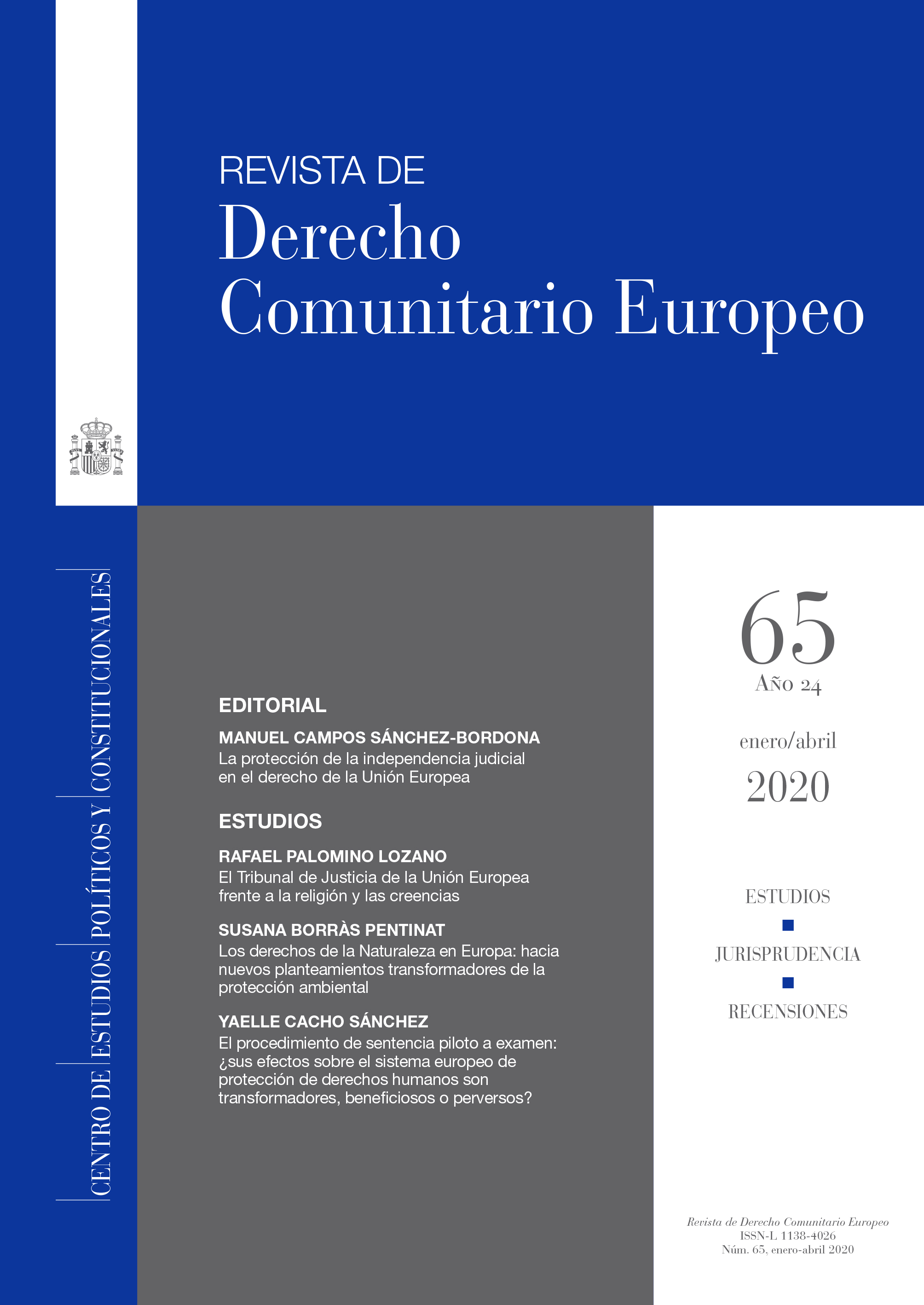Text and data mining in cross-border environments
Regime in European law, comparative law and in the European system of private international law
DOI:
https://doi.org/10.18042/cepc/rdce.77.04Abstract
The new technological possibilities for text and data mining have caused legislative changes in some intellectual property laws. The changes seek to ensure that copyright holders cannot excessively restrict the possibilities of developing new products and services based on the new uses enabled by technology. Among the countries that have developed new legislation are Japan, the United Kingdom and Singapore, to which the European Union has joined with Directive 2019/790. The comparative legislations have been based on different principles that have given rise to disparate regulations. It is increasingly common for text and data mining to be carried out in a cross-border context due to various factors such as the existence of collaborators who work in other countries, the formation of the corpus with content from different origins or its publication or accessibility from different countries. In the absence of uniform solutions, to know whether text and data mining activities that take place in cross-border environments can be carried out without incurring copyright infringement, it is necessary to determine the applicable law. The study analyzes the differences between European and comparative regulations that establish legal exceptions to copyright to promote text and data mining, and carries out a critical review of the solutions provided by the European system of Private International Law in the sectors of international jurisdiction and the applicable law.
Published
Issue
Section
License
Copyright
Submission of a manuscript to the RDCE implies having read and accepted the journal's editorial guidelines and instructions for authors. When a work is accepted for publication, it is understood that the author grants the RDCE exclusive rights of reproduction, distribution and, where appropriate, sale of his manuscript for exploitation in all countries of the world in printed version, as well as any other magnetic, optical and digital media.
Authors shall transfer the publishing rights of their manuscript to RDCE so that it may be disseminated and capitalised on Intranets, the Internet and any web portals and wireless devices that the publisher may decide, by placing it at the disposal of users so that the latter may consult it online and extract content from it, print it and/or download and save it. These activities must comply with the terms and conditions outlined on the website hosting the work. However, the RDCE authorises authors of papers published in the journal to include a copy of these papers, once published, on their personal websites and/or other open access digital repositories. Copies must include a specific mention of RDCE, citing the year and issue of the journal in which the article was published, and adding a link to the RDCE website(s).
A year after its publication, the works of the RDCE will be under the Creative Commons Attribution-Noncommercial-NoDerivative 4.0 International license (CC BY-NC-ND 4.0), which allows third parties to share the work as long as its author and its first publication is indicated, without the right to commercial exploitation and the elaboration of derivative works.
Plagiarism and scientific fraud
The publication of work that infringes on intellectual property rights is the sole responsibility of the authors, including any conflicts that may occur regarding infringement of copyright. This includes, most importantly, conflicts related to the commission of plagiarism and/or scientific fraud.
Practices constituting scientific plagiarism are as follows:
1. Presenting the work of others as your own.
2. Adopting words or ideas from other authors without due recognition.
3. Not using quotation marks or another distinctive format to distinguish literal quotations.
4. Giving incorrect information about the true source of a citation.
5. The paraphrasing of a source without mentioning the source.
6. Excessive paraphrasing, even if the source is mentioned.
Practices constituting scientific fraud are as follows:
1. Fabrication, falsification or omission of data and plagiarism.
2. Duplicate publication.
3. Conflicts of authorship.
Warning
Any breach of these Rules shall constitute a ground for rejection of the manuscript submitted.


